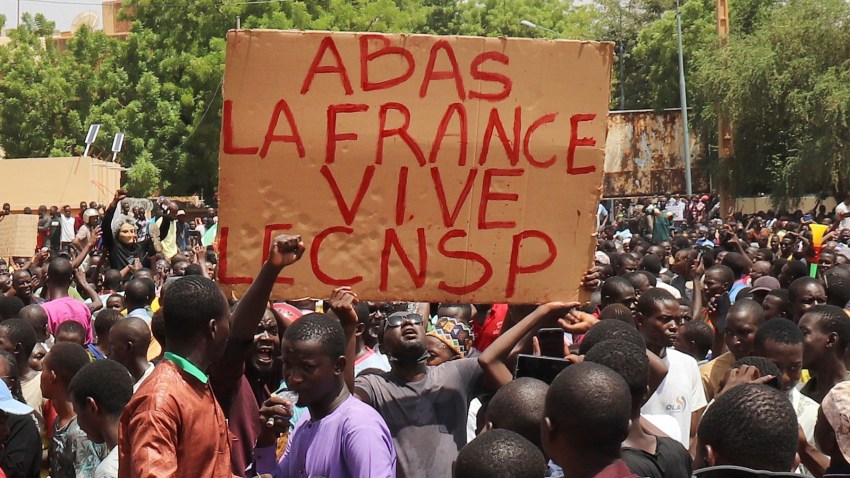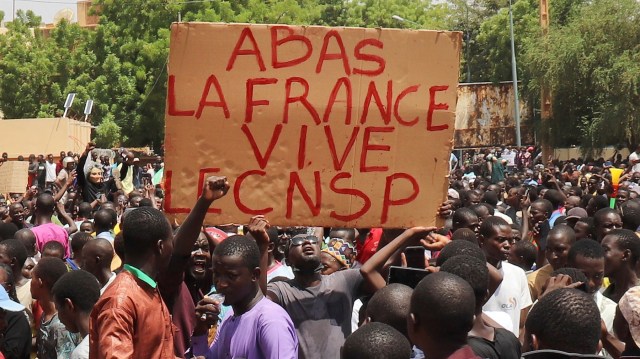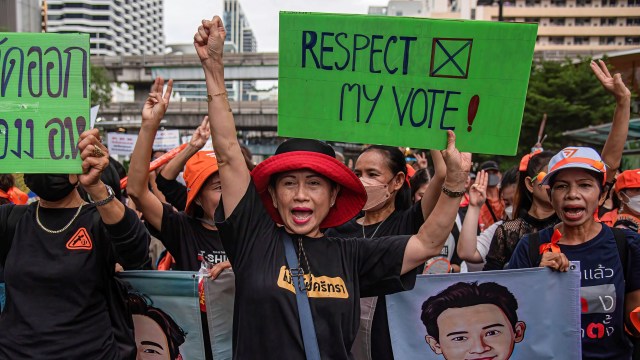Hello everyone. Today at WPR, we’re covering the lessons EU policymakers should take from the coup in Niger and democracy’s regression in Southeast Asia.
U.S. versus China: China’s economy has fallen into deflation as the consumer price index fell 0.3 percent year on year in July, its first decline since early 2021. Consumer spending in China was expected to rebound after authorities lifted pandemic restrictions at the end of last year, but the reverse has occurred. (Financial Times)
Meanwhile, the Biden administration is expected to unveil an executive order in the coming days that would restrict U.S. investment in China. But the plan has reportedly been softened, applying only to Chinese companies that get at least half of their revenue from cutting-edge sectors such as quantum computing and AI. (Bloomberg)
Our Take: A perhaps obvious but underexamined aspect of the economic rivalry between Washington and Beijing is this simple fact: China’s unprecedented rise over the past two decades was, well, unprecedented. It was never going to continue at the rate that it has.
As a result, the Chinese economy now faces a number of challenges, not least being the need to boost domestic consumption in order to move away from the export-driven growth model that has fueled its expansion to date. But it must do so as the U.S. attempts to hamper its further rise.
For its part, Washington is seeking to counter China as an economic and strategic rival, while avoiding a fixed pathway that ends in direct confrontation with Beijing. That would be economically disastrous, considering how interlinked their economies still are. As importantly, however, Washington must avoid being perceived as offering Beijing no alternative to conflict, as that would alienate the allies and partners whose support the U.S. will need to effectively compete with China.
As a result of those dynamics, the Biden administration’s reported intention to limit the scope of its investment ban in high-tech Chinese industries makes perfect sense: a move calibrated to counter China, but not too much.
*****
You can read the rest of today’s News Wire, a curated selection of one must-read article from every region, here.

In the past two weeks, the coup in Niger has snowballed into a confrontation pitting the civilian-led states of ECOWAS against military juntas in West Africa. The standoff, however, is also the result of flawed strategic choices by EU member states as well as local actors that have contributed to a rising tide of instability in the region.
Columnist Alexander Clarkson writes that the challenges generated by collapsing power structures in the Sahel provide three key lessons for European policymakers:
Ready or Not, ECOWAS Is the Sahel’s Last Best Hope
In the past two weeks, the coup in Niger has snowballed into a confrontation pitting the civilian-led states of ECOWAS against military juntas in West Africa. But the standoff is a symptom of broader dysfunctions in the global system that underscore the need for the EU and its members to reassess their approaches to foreign policy. Read more.
In the 1990s and early 2000s, Southeast Asia seemed to offer a model for democratization for other developing countries. Today, it is a long way from that promising period.
How does this democratic regression affect the region’s stability and, potentially, its development? Joshua Kurlantzick breaks it down:
The State of Democracy in Southeast Asia Is Bad and Getting Worse
In the 1990s and early 2000s, Southeast Asia seemed to offer a model for democratization for other developing countries. But today the region is a long way from that promising period, with the state of democracy in dire shape. It seemed by 2020 that things couldn’t get worse. And yet, in the past few years, they have. Read more.

The eight members of the recently revived Amazon Cooperation Treaty Organization, or ACTO, urged industrialized countries to do more to help preserve the world’s largest rainforest at a summit in Brazil on Tuesday.
Brazilian President Luiz Inacio Lula da Silva, in particular, put preservation of the Amazon at the top of his agenda when he entered office earlier this year. Since then, deforestation has dropped 42 percent in Brazil.
Still, as Constance Malleret wrote in May, there are domestic limitations to Lula’s ability to achieve his ambitions:
In Brazil, Lula’s Green Agenda Is Putting Him in a Political Bind
May 19, 2023 | Lula’s pledge to fight climate change and deforestation faces obstacles and could come with a political cost. Read more.
That’s all for today’s Daily Review. Coming up, we’re covering a potential peacekeeping mission in Haiti and an attempt by Myanmar’s military junta to improve its image abroad.
Have a great day,
Jakob Cansler
More From WPR
- Richard Gowan on how to be a policy wonk.
- Miquel Vila Moreno on regional parties’ dilemma in Spain.
- James Bosworth on the possible expansion of BRICS.
- Aude Darnal on why the U.S. should end the war on terror.



